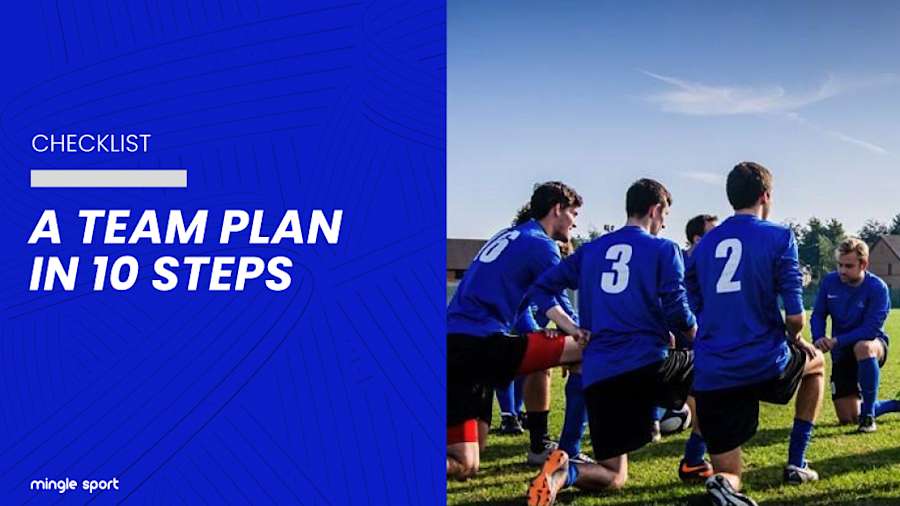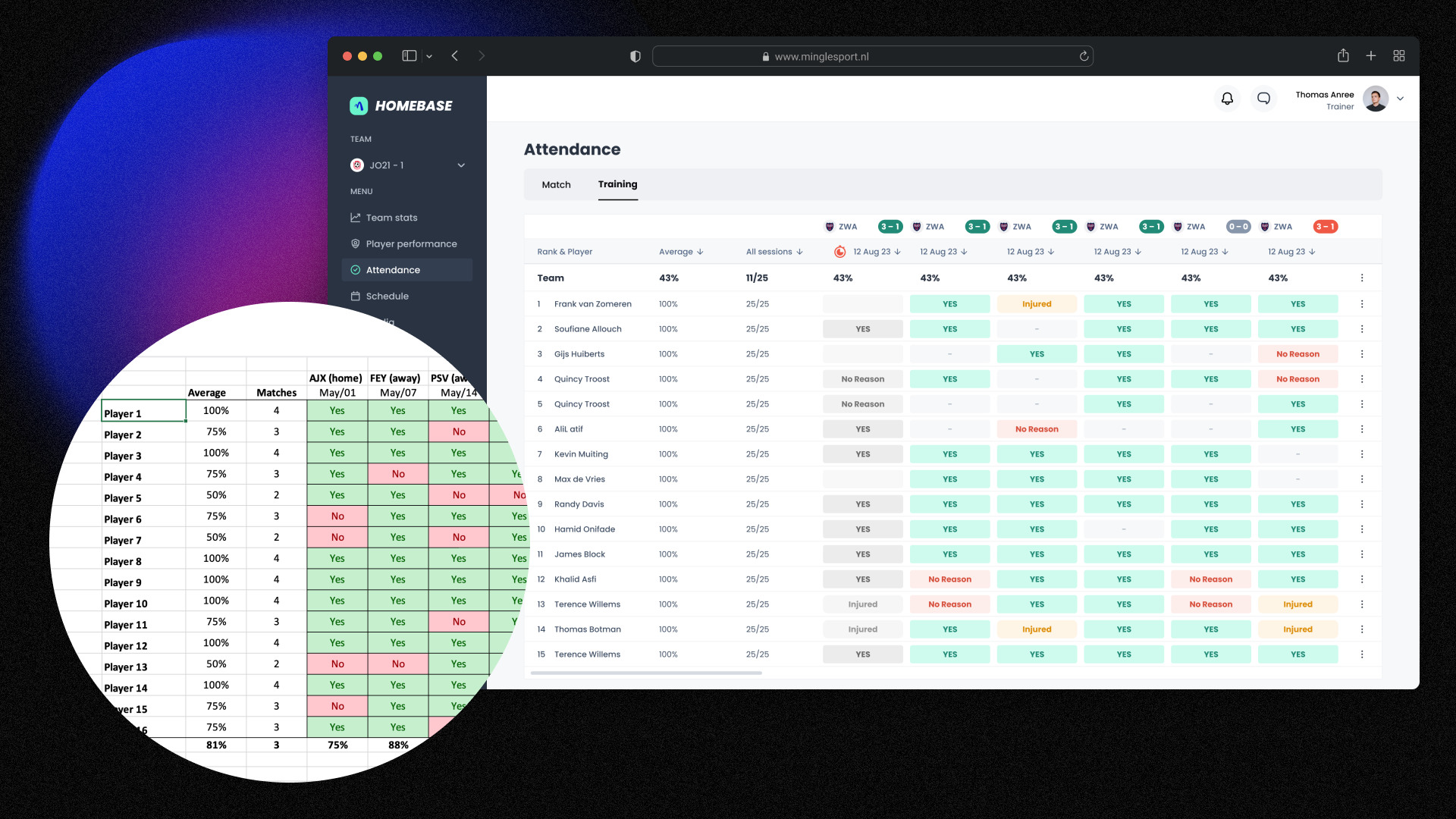A Team Plan Checklist for your football team

The Team Plan Checklist for your football team
Youth football (soccer) teams often encounter challenges like inconsistent performance, communication issues, and conflicts among players, coaches, and parents. These problems can disrupt team dynamics, negatively impact player development, and prevent the team from reaching its full potential.
A comprehensive Team Plan is the solution. By clearly defining goals, roles, responsibilities, and conduct guidelines, a Team Plan aligns everyone involved, fosters a positive team culture, and improves communication. This strategic approach not only enhances on-field performance but also promotes personal growth, helping your soccer team achieve success throughout the season.
Team Plan Checklist
We’ve created a 10 step checklist for creating a team plan. You can use this checklist when creating a plan for your football team.
1. Vision & Mission Statement
Define the Vision: What do you want the team to achieve this season? (e.g., development focus, league title, promotion, etc.)
Create a Mission Statement: What values and principles will guide the team? (e.g., teamwork, discipline, respect, etc.)
2. Season Goals & Objectives
Performance Goals:
Team goals (e.g., win X number of games, achieve a certain league position).
Individual player goals (e.g., skill development, fitness improvements).
Developmental Objectives:
Technical skills (e.g., dribbling, passing accuracy).
Tactical understanding (e.g., positioning, formations).
Physical conditioning (e.g., stamina, strength).
Social Objectives:
Team bonding activities.
Encouraging sportsmanship and fair play.
Developing leadership qualities within the team.
3. Team Roles & Responsibilities
Coaches
: Define the roles of head coach, assistant coach, and any other staff.
Players
: Establish expectations (e.g., attendance, punctuality, effort in training).
Captains/Leaders
: Outline the roles and expectations for team captains or leaders.
Parents
: Define how parents can support the team (e.g., transportation, encouragement, attending meetings).
4. Communication Guidelines
With Players:
Preferred communication channels (e.g., team meetings, messaging apps).
Frequency and content of communication (e.g., weekly updates, individual feedback).
With Parents:
Parent meetings (e.g., pre-season, mid-season review).
Regular updates on team progress and schedules.
Guidelines for game-day communication (e.g., positive support, avoiding sideline coaching).
5. Training Plan & Schedule
Training Schedule:
Weekly training days and times.
Duration and focus of each session.
Training Content:
Technical drills (e.g., passing, shooting).
Tactical sessions (e.g., formations, match simulation).
Fitness work (e.g., conditioning, injury prevention).
Mental preparation (e.g., goal setting, visualization).
6. Match Preparation & Analysis
Pre-Match Preparation:
Warm-up routines.
Pre-match team talk (focusing on tactics, mindset).
Post-Match Analysis:
Review performance (what went well, areas for improvement).
Individual and team feedback sessions.
7. Code of Conduct
Player Conduct:
Expectations on behavior (e.g., respect for teammates, opponents, referees).
Consequences for breaching the code of conduct.
Parent Conduct:
Guidelines for supporting the team positively.
Addressing concerns (e.g., using appropriate channels, timing).
Coach Conduct:
Setting an example (e.g., professionalism, fairness, consistency).
Commitment to player development and welfare.
8. Team Culture & Values
Fostering Team Spirit:
Team-building activities (e.g., social events, bonding exercises).
Celebrating successes (e.g., player of the week, team milestones).
Inclusivity and Respect:
Encouraging diversity and inclusion within the team.
Promoting a supportive environment where every player feels valued.
9. Parental Involvement
Parent Meetings:
Pre-season meeting to discuss expectations and goals.
Mid-season check-in to review progress.
End-of-season review and feedback session.
Volunteering Opportunities:
Organizing team events (e.g., fundraisers, end-of-season party).
Helping with logistics (e.g., carpooling, refreshments).
10. Continuous Improvement
Feedback Mechanisms:
Regular feedback from players and parents.
Self-evaluation for coaches (what’s working, what needs improvement).
Adapting the Plan:
Mid-season adjustments based on progress and challenges.
Post-season evaluation to set the groundwork for the next season.
This checklist will guide you through the process of creating a detailed and effective Team Plan, ensuring that your team is prepared, aligned, and motivated for a successful season.





